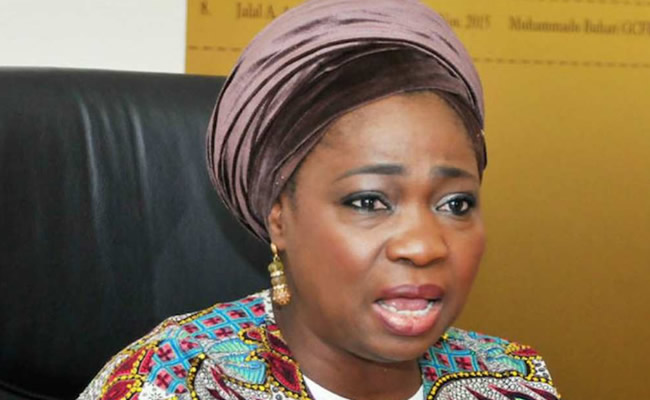NGO calls for actions towards safeguarding women's, girls' rights
As Nigeria joined the global community to commemorate the 2016 International Women’s Day on Tuesday, a non-governmental organisation, Development Communications Network (DevComs Network) has called on government at all levels to ensure implementation and stimulate devotion to gender equality and women’s rights issues.
The theme for 2016 International Women’s Day is “Planet 50-50 by 2030: Step It Up for Gender Equality”.
The theme underscores the urgent need to accelerate substantial actions towards a more equitable world and build momentum for the effective implementation of the new Sustainable Development Goals (SDGs) especially Goal 4 (Ensure inclusive and equitable quality education and promote lifelong learning opportunities for all) and Goal 5 (Achieve gender equality and empower all women and girls).
According to Omobonike Adebayo and Biodun Owo of DevComs Network, in many nations around the world, including Nigeria, gender discrimination is still very persistent and perpetrated through social norms.
“For example discriminatory practices such as child/forced marriage, human trafficking, female genital mutilation/cutting, physical and sexual violence are still very prevalent in Nigeria with women and girls being victims of these practices. Women and girls are also disproportionately affected in conflict situations.”
They said, child marriage is deeply rooted in the cultural traditions of many communities in Nigeria. Though the practice is believed to be a way of protecting the girl child from sexual assault and unwanted out-of-wedlock pregnancies as well as to protect family honour.
“Child marriage is a violation of human rights as majority of young girls are married without their free and full consent.
Trafficking in persons is still prevalent despite measures put in place by the government to punish perpetrators.”
A report by the United Nations High Commission for Refugees (UNHCR) shows that Nigeria country still serves as a source, transportation and destination for the trading of women and children. Over 8 million children are engaged in forced labour and most of them are gathered from rural areas within the country’s borders.
According to 2013 National Demographic and health Survey (NDHS), 28 per cent of women age 15-49 have experienced physical violence at least once and 7 per cent experienced sexual violence at least once in their lifetime.
A 2014 study by the National Agency for Prohibition of Trafficking in Persons (NAPTIP) revealed that some of these women and girls are taken out of the continent for sexual exploitation.
However, the Executive Director of Women Advocates Research Documentation Centre (WARDC), Dr Abiola Akiyode urged Nigerian government to do a gender audit of their laws to ensure that discrimination against women and girls do not persist, and ensure that funds are budgeted towards addressing inequalities in Nigeria.
“On maternal health the government should ensure that maternal health service is free, adequate and accessible”, she added.
According to the Country’s representative of Champions for Change project in Nigeria, Theressa Kaka Effa, “Nigeria has great and various plans, policies, and laws to guide us in addressing our development and health issues. What we lack is the willpower at individual, community and governance level to do what is right. My recommendation to those in Governance is to be accountable to citizens – enforce and implement the various provisions as enshrined in protective laws such as the Child’s Rights Act, the National health Act 2014 , the Violence against persons prohibition Act 2015, Trafficking in Persons (Prohibition) Enforcement and Administration Act, 2015 Etc.”
She also called on citizens to take responsibility for their health and development by seeking information and educating others as well, demand for their rights and entitlements, vote objectively and for leaders who care about them and make true their promises
A legal practitioner and civil rights activist, Ayo Adebusoye asserted that the recent unfortunate events in the last week in Nigeria reveals the plight of the girl child and the fact that the Nigerian state is still playing lip service to the protection and empowerment of women.
“The widely reported abduction, ‘marriage’ and pregnancy of 14 year old Miss Ese Oruru from Bayelsa State, the abduction of three female students of the Babington Macaulay Junior Seminary, Ikorodu, Lagos – against the lingering backdrop of the 219 female students kidnapped without a trace almost two years ago from their hostel at the Chibok Girls Government Secondary School in Borno State show that the country must move urgently from empty rhetoric to concrete, specific, steps to halt this escalating abuse, mistreatment and oppression of women”.
He further condemned the comment by a ‘distinguished’ senator at an open plenary session of the Senate this week who urged Nigerian men to “patronize made-in-Nigeria women”.
This, he says, exemplifies the mindset that is at the root of these ever increasing abuses- that women are chattel to be bought and sold in the market place!
Adebusoye called on the Presidency and the Federal Government to take the lead in ensuring that there is zero tolerance for such verbal and physical abuse of women.
“Nigeria has signed enough international treaties, conventions and passed enough laws towards the protection of women. Now it is time to act on those laws. Women, especially the girl-child must be given priority for their protection, promotion and empowerment from cradle to the grave. Otherwise, the consequences have started staring us in the face – the next generation will witness the rise of countless boko haram clones and offspring”, he said.
International Women’s Day I(WD) is celebrated on March 8 annually in many countries around the world as a day when women are recognized for their achievements without regard to divisions, whether national, ethnic, linguistic, cultural, economic or political.








